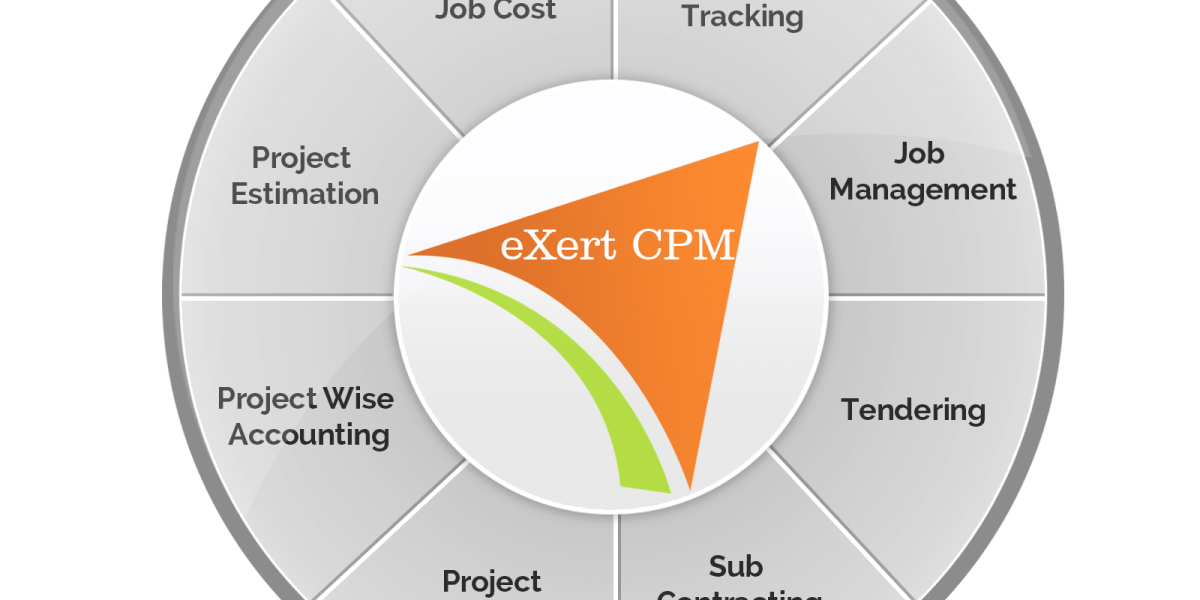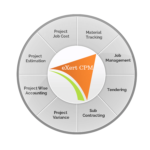Pakistan’s construction industry has experienced significant growth in recent years, driven by both private development and public infrastructure projects. From urban high-rises to rural housing schemes and mega projects like the China-Pakistan Economic Corridor (CPEC), construction activity is booming. However, managing these complex projects efficiently remains a critical challenge.
This is where Construction Project Management Software in Pakistan steps in—bringing digital transformation to an industry that has traditionally relied on manual processes. In Pakistan, an increasing number of companies are now embracing CPMS to streamline operations, improve collaboration, and ensure project delivery on time and within budget.
Understanding Construction Project Management Software
Construction Project Management Software is a digital solution designed to plan, coordinate, and control construction projects from inception to completion. These tools integrate various aspects such as scheduling, budgeting, resource allocation, document management, and real-time communication.
Key features often include:
-
Project scheduling and Gantt charts
-
Budget and cost tracking
-
Resource and labor management
-
Document storage and version control
-
Real-time collaboration tools
-
Reporting and analytics dashboards
In Pakistan, these features are increasingly becoming essential rather than optional, especially for firms aiming to compete at national and international levels.
Why CPMS is Crucial for the Pakistani Market
1. Managing Complexity
Many construction projects in Pakistan suffer delays due to poor coordination, lack of transparency, and miscommunication. With multiple stakeholders involved—contractors, subcontractors, suppliers, and government bodies—the complexity multiplies.
CPMS centralizes information and streamlines workflows, reducing miscommunication and delays. This is particularly beneficial in high-stakes projects like motorways, housing schemes, and commercial developments.
2. Improving Cost Efficiency
Budget overruns are common in Pakistan’s construction sector. Traditional budgeting methods can be error-prone and lack real-time visibility. CPMS offers real-time budget tracking and alerts, helping project managers stay on top of financials and avoid overspending.
3. Enhancing Transparency and Accountability
Corruption and lack of accountability have often marred construction projects in Pakistan. CPMS introduces transparency by maintaining a digital record of all activities and transactions. This makes audits easier and deters malpractices.
4. Remote Project Management
With projects often spread across different cities and provinces, managing them remotely becomes crucial. Cloud-based CPMS platforms allow stakeholders to access project data from anywhere, reducing the need for frequent site visits and enabling better decision-making.
Popular Construction Project Management Software in Pakistan
Several international and local CPMS solutions are gaining traction in Pakistan:
1. Procore
Procore is a globally recognized CPMS that offers robust features tailored for large-scale projects. It is used by major firms in Pakistan for high-end commercial and infrastructure developments.
2. Buildertrend
Buildertrend is favored by small to mid-sized construction firms in Pakistan. It offers a user-friendly interface and essential tools like budgeting, scheduling, and client communication.
3. PlanRadar
PlanRadar is gaining popularity in Pakistan for its strong focus on documentation and field management, making it suitable for contractors and engineers managing multiple on-site teams.
4. BuildSmart
BuildSmart is a construction ERP that combines accounting with project management. It’s especially useful for firms that want an integrated financial and project tracking solution.
5. Local Solutions
Pakistan has also seen the emergence of local CPMS providers like Construct360 and SmartConstruct, offering solutions tailored to the local market, language preferences, and cost structures.
Challenges to Adoption in Pakistan
While CPMS offers many benefits, its adoption in Pakistan comes with challenges:
1. Lack of Awareness
Many construction companies, especially small and medium-sized enterprises (SMEs), are still unaware of the benefits of digital project management tools.
2. Resistance to Change
The construction industry in Pakistan is traditionally conservative. Resistance from senior managers and workers who are used to manual methods can slow down implementation.
3. Limited Digital Literacy
There’s a skills gap in the workforce when it comes to using digital tools. Training and support are essential to make CPMS effective.
4. Internet Connectivity Issues
Although internet penetration is increasing, remote areas still face connectivity challenges. Cloud-based solutions need reliable internet access to function optimally.
The Role of Government and Industry Bodies
To foster digital transformation in construction, government and industry bodies can play a crucial role by:
-
Providing subsidies or incentives for adopting CPMS
-
Conducting awareness campaigns
-
Offering training and certification programs
-
Mandating the use of digital tools in public infrastructure projects
Organizations like the Pakistan Engineering Council (PEC) and National Construction Council can take the lead in driving these initiatives.
Future Outlook
As Pakistan continues to invest in infrastructure, the demand for efficient project management tools will grow. Here’s what the future may look like:
-
Wider Adoption of AI and IoT: Advanced CPMS platforms will integrate AI for predictive analytics and IoT for real-time site monitoring.
-
Integration with BIM: Building Information Modeling (BIM) will become more widespread, and its integration with CPMS will enhance planning and execution.
-
Mobile-First Solutions: Given the rise of mobile internet in Pakistan, mobile-friendly CPMS apps will be critical.
-
Localization: More local software developers will enter the market with Urdu-language support and region-specific features.
Conclusion: Building Smarter, Not Just Bigger
The construction industry in Pakistan stands at a pivotal point. As the scale and complexity of projects grow, so does the need for smarter, more efficient project management solutions. Construction Project Management Software is not just a tool but a necessity for firms aiming to thrive in a competitive market.
By overcoming adoption challenges and investing in digital transformation, Pakistan’s construction sector can achieve higher productivity, transparency, and quality—paving the way for a more sustainable and prosperous future.












